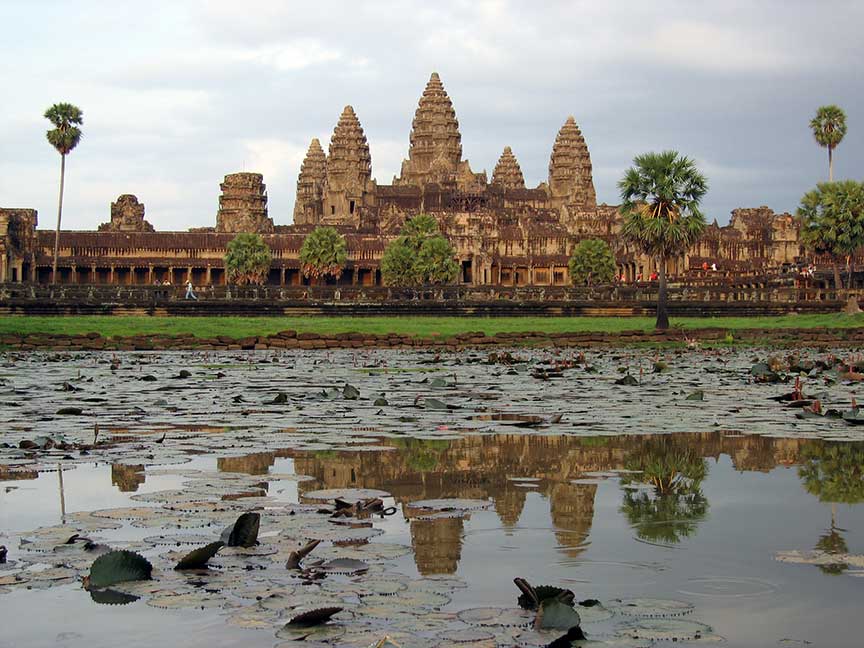1975 Pol Pot Takes Over Cambodia

Angor-Wat Cambodia
On April 17th, 1975 Communist forces captured Phnom Penh, the capital of Cambodia. The new Communist regime was headed by Pol Pot, who ruthlessly tried to remake Cambodia. He implemented the forced relocation of millions of people, resulting in the deaths of at least hundreds of thousands of individuals. The world stood by as the deaths mounted.
Pol Pot, born Saloth Sar, led the Khmer Rouge, a radical Communist regime. On April 17, 1975, after a devastating civil war, his forces captured Phnom Penh, marking the start of a drastic and deadly transformation of Cambodian society.
Upon taking power, Pol Pot and the Khmer Rouge aimed to create a self-sufficient, agrarian society, which they viewed as a return to an idealized "Year Zero". To achieve this, they imposed drastic measures, including the forced relocation of millions from urban areas to the countryside to work in agricultural labor. The regime sought to eliminate all traces of what they saw as corrupting influences - this included religion, western culture, city life, and intellectualism.
These forced relocations and the conditions people faced in the labor camps - including overwork, malnutrition, and inadequate medical care - resulted in widespread death. The regime also executed many perceived as enemies of the state, in what became known as the Cambodian genocide. The exact number of deaths during this period is disputed, but estimates generally agree on a death toll of at least 1.7 million people, or around a quarter of Cambodia's population.
The international community largely failed to intervene during this period. This has been attributed to a variety of factors, including Cold War dynamics, the geopolitical interests of China and Vietnam, and the lack of reliable information coming out of Cambodia during the Khmer Rouge's rule.
The Khmer Rouge was ultimately toppled by Vietnamese forces in 1979, but the effects of their brutal regime have had long-lasting impacts on Cambodia. The atrocities committed during this period were investigated and prosecuted by the Extraordinary Chambers in the Courts of Cambodia, a special court established in 1997.
 >
>